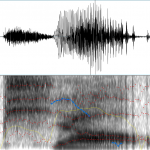Recent articles about how to learn Mandarin Page 36
-
A learner’s guide to TV shows in Chinese, part 2
After having talked about how and why to use television to learn Chinese, it’s time to look at actual genres and programmes and see how these can help a language learner improve his or her skills. In this second article, the focus is on cooking, quiz and gaming shows, as well as home-made videos, cartoons and anime.
Read → -
Sensible character learning challenge 2014: The Big Finish
This article marks the end of the 2014 sensible character learning challenge. Post your progress report to win prizes and read about my own reflections on learning characters! There’s also some information about future challenges on Hacking Chinese and an offer to beta test a new challenge engine.
Read → -
How to reach a decent level of Chinese in 100 days
Scott Young has written a lot about how to learn more efficiently and this year he has turned his focus entirely on languages. He spent three months in China and managed to reach a very decent level of Chinese in that time, including passing HSK4. In this article, he shares his experience and the strategies he used. The article also contains two video interviews, one with John Pasden (Sinosplice) and one with me.
Read → -
Hacking Chinese meet-up in Taipei 2014-06-28
It’s time for what might be the last Hacking Chinese meet-up in Taiwan for quite some time. I’m going to China this summer and then back to Sweden. If you haven’t joined any previous meet-ups, this is a good chance to do so! If you have joined earlier meet-ups, I’m looking forward to seeing you again before I leave!
Read → -
How and why to watch the world cup in Chinese
If you’re going to watch the world cup, do it in Chinese! Watching sports is an awesome way of learning a language, almost regardless of which level you’re at. As a beginner, you can follow what’s going on even if you don’t understand much. At higher levels, you can pick up a lot of vocabulary and phrases while enjoying the game!
Read → -
Launching Hacking Chinese Resources
“Resources” is a new section of Hacking Chinese that strives to provide you with resources for learning Chinese suitable to you. Everything is neatly tagged by difficulty level, topic/skill and type of resource, enabling you to find whatever you need, whenever you need it.
Read → -
A learner’s guide to TV shows in Chinese, part 1
After having talked about how and why to use television to learn Chinese, it’s time to look at actual genres and programmes and see how these can help a language learner improve his or her skills. In this first article, the focus is on sports (including e-sports), drama, super idol drama, talk shows, news, documentaries and travel shows.
Read → -
Sensible character learning challenge 2014: Milestone #3
The second milestone in the 2014 sensible character learning challenge has now been reached! This is also the last opportunity to join the challenge if you haven’t already. If you have, it’s time to report you progress in May. This article also contains information about prizes (character posters, free extensions and Chinese learning products) for the third milestone, as well as my own reflections of my character learning.
Read → -
How and why to use television to learn Chinese
Television is a valuable asset in the modern language learners toolkit. The medium provides a convenient way to enjoy large volumes of passive listening practice in a stress free environment. The combination of visual and auditory senses makes the medium accessible to the entire spectrum of Chinese learners, from the beginner through to advanced learners. This is article is about how and why to use television to learn Chinese.
Read → -
How to find out how good your Chinese pronunciation really is
Evaluating pronunciation needn’t be hard, but many methods commonly used by teachers are deeply flawed, resulting in inaccurate error analysis. If we want to improve, we need to be clear about what we need to improve first. This article looks at some problems with commonly used methods to evaluate pronunciation and suggests some alternatives.
Read →


